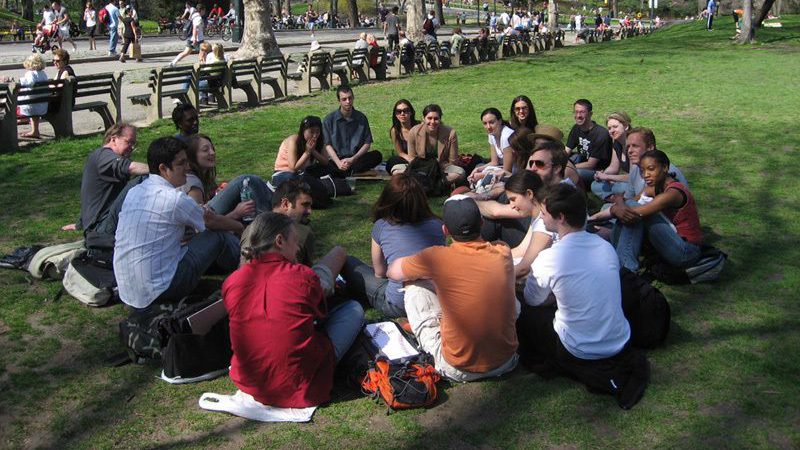Happiness is as good a subject for scientific research as any other. After all, it’s the fundamental state of being that most people strive to attain in their lives.
Scientists at Harvard University agree, which is why they’ve been conducting an ongoing longitudinal study on happiness since 1938! It’s the longest of its kind ever performed, and the results are fascinating. This wisdom is essential to incorporate into daily life for anyone who values their health and wants to live to the fullest.
The big picture idea is that, while good genes play a role in determining long-term health, they’re not the most important factor. It turns out that social factors are actually a lot more predictive of sustained health and happiness! So check out this simple breakdown of Harvard’s revolutionary research, and learn how to nurture your social life for a happy today and tomorrow.
Lessons from 80 years (and counting) of Harvard’s happiness study
What began as a study of 268 Harvard sophomores during the Great Depression has grown to include their spouses, their children, further generations, as well as hundreds of inner-city Boston residents, with the number of participants now reaching into the thousands. (Fun fact: one of the study’s original participants was none other than future President of the United States, John F. Kennedy!)
Who’s running this study?
Because of the decades-long nature of the research, this study has so far had four different directors! Currently leading the study is Robert Waldinger, a psychiatrist at Massachusetts General Hospital and a professor of psychiatry at Harvard Medical School. The study first received funding from the National Institute of Mental Health, and later the National Institute on Aging.
What are they looking for?
The parameters of the study are wide-ranging. Participants’ health trajectories are the main data, but researchers also take note of their broader lives, including their triumphs and failures in career, marriage, friendship, and more. Overall, the point is to learn both how and why people age differently, and to understand the role that joy plays in achieving a long life.
What have been the main takeaways?
The research suggests that tending to your relationships is an important form of self-care, just as vital as taking care of your body. These are some of the most interesting highlights of the study:
- Close ties help delay mental and physical decline, and contribute more to happiness than money, fame, social class, IQ, and genetics.
- Relationship satisfaction is a better indicator of how people will grow old than their middle-age cholesterol level.
- People with a strong sense of community benefit from better memory function. Empathy and attachment are key to healthy aging.
- Loneliness can be as powerful a negative influence on health as smoking or alcoholism. As Waldinger puts it, “Loneliness kills.”

How to respond to these revelations about happiness
The science is clear: emphasizing warm relationships is one of the best things you can do to ensure a long and healthy life. Community in its various forms is the number one determining factor for happiness—and pursuing happiness, it turns out, is an important act of self-care.
Luckily, community is right at your fingertips. If for no other reason than for the good of your own health, take a step outside your comfort zone and try connecting with a Meetup group.
The best place to start is with an interest you already have. For example, if you like to write (whether it’s scribbling poems in your Moleskine or drafting the outline of your next screenplay) you could join a community like the NYC laid-back writing group. Or if you’re a lover of the great outdoors, you could tag along with a group like the Nashville Hiking Meetup. The simple act of bringing an activity you’d normally do alone into a communal setting can make a huge impact on your sense of belonging and togetherness.
Make a doable commitment for yourself: try going to at least two non-work-related social gatherings per month. And when you do go, be sure to follow up with the people you meet, and be intentional about sustaining those new connections. If you don’t see a group near you catering to your interest, you can easily create your own Meetup group and invite others to join you in taking one small step toward a long and happy future.

James Quigley is a writer, editor, and educator whose work has received Pushcart Prize and Best New Poets nominations. James was born and raised in New York, where he lives and works as a freelance writer. See more of his writing here.
Last modified on December 22, 2023











